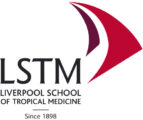Liverpool School of Tropical Medicine (LSTM), founded 1898, was the first institution dedicated to research and teaching in the field of tropical medicine. We work to fulfil our mission of reducing the burden of sickness and mortality in disease endemic countries and remain at the cutting edge of innovation in research and intervention, by attracting the best researchers from around the world to address global health issues to attempt to break the cycle of poor health and poverty.
As an institution with a vision to translate its research findings into practical benefits for people across the globe, the driving force for the development of our research questions comes from the communities where diseases and conditions are prevalent. Our Translational research model is collaborative by definition and LSTM’s major achievements have always been delivered through partnerships. Our Research operates globally and has developed close links with academic and non-academic partners including governmental, non-governmental organisations (NGOs), product development partnerships (PDPs) and industry (large pharma and SMEs) in over 60 countries, predominantly in LMICs but also regionally and across the UK. We support over 600 students from 68 countries in Post Graduate Research, Masters and professional courses, working in partnership with health ministries, universities and research institutions worldwide to train the next generation of doctors, scientists, researchers and health professionals.
Innovation and translation are at the forefront of work at LSTM as it aims to discover and develop, then go forward with implementation of its innovative ideas. The continuous search for, and development, of new products will help to improve prevention and treatment of many diseases and address global health issues. This, together with knowledge of their effective implementation and an understanding of their impact through monitoring and evaluation, provides evidence to enable the uptake of LSTM’s research outcomes into policy and practices, ultimately benefiting the global population.
